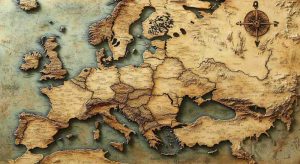The Nonsense and Injustice of Double Passports

The issue of double passports or dual nationality is often framed as a matter of personal freedom and global mobility. Proponents argue that it reflects the modern, interconnected world and allows individuals to maintain ties to their heritage while benefiting from the rights and privileges of multiple nations. However, beneath this seemingly progressive narrative lies a fundamental injustice and a source of legal, political, and social inequality.
Dual nationality creates a privileged class of citizens who can exploit the benefits of multiple systems while escaping the responsibilities and obligations that come with full citizenship. It distorts the concept of national loyalty, weakens political cohesion, and creates diplomatic conflicts. Furthermore, it places single-national citizens at a disadvantage by allowing dual nationals to avoid taxes, military service, and political accountability while benefiting from the full range of legal protections and social services. This article will examine the legal, political, and social consequences of dual nationality, highlighting how it creates an unequal and unstable society.
Legal inequality and exploitation of the system
Tax evasion and legal loopholes
Taxation is a particularly glaring example. Some countries, like the United States, impose taxes on their citizens regardless of where they live. According to an article in The New York Times by Patricia Cohen, American citizens living abroad are still required to file tax returns and report their global income to the IRS (Cohen, “U.S. Expats Find That Tax Law Changes Make Life More Complicated,” The New York Times, 2018).
However, many dual nationals strategically shift their financial assets and declare residency in the country with the most favorable tax regime. Wealthy individuals with dual citizenship in the U.S. and a tax haven like Monaco or the Cayman Islands can structure their income to minimize their tax burden while still benefiting from U.S. diplomatic protection and access to the American legal system.
In Europe, the situation is similar. Dual nationals with citizenship in an EU country and a non-EU tax haven often register their businesses or assets in the more favorable jurisdiction to avoid higher European taxes. This creates an unfair system where those with dual citizenship can legally avoid taxes while still benefiting from European infrastructure, healthcare, and social programs.
A single-national citizen, by contrast, has no such escape route. They are subject to the full force of domestic tax law and cannot shield their assets or income by declaring alternative residency. This creates an unequal system where dual nationals are effectively subsidized by single-national taxpayers.
Legal protection and diplomatic interference
Legal protection is another area where dual nationals enjoy an unfair advantage. When a dual national is arrested or prosecuted in one country, the second country often intervenes diplomatically, complicating legal proceedings and creating a perception of unfair influence.
One of the most notorious examples is the case of Julian Assange, who held dual citizenship in Australia and Ecuador. When Assange faced legal trouble in the United Kingdom, Ecuador granted him asylum in its London embassy, effectively shielding him from British law enforcement for nearly seven years (Borger, “Julian Assange: From Hacker to Fugitive,” The Guardian, 2019). A single-national citizen in a similar legal situation would have had no such diplomatic lifeline.
Dual nationals also receive privileged treatment in terms of consular assistance. According to a report by the U.S. Department of State, American citizens arrested abroad are entitled to legal and diplomatic support from the nearest U.S. embassy (U.S. Department of State, “Consular Assistance for U.S. Citizens,” 2021). Dual nationals arrested in a foreign country can often leverage diplomatic pressure from two governments, giving them access to more legal resources and political leverage than a single-national citizen would ever receive.
Political and diplomatic conflicts
Divided loyalties in international conflicts
Military conflicts make this problem particularly clear. A dual national may face a situation where the two countries they hold citizenship in are at odds—or even at war. Where does their loyalty lie?
The Russia-Ukraine conflict provides a clear example. According to an article in Foreign Policy by Amy Mackinnon, thousands of Ukrainian citizens also hold Russian passports (Mackinnon, “Russia’s Passport Power Play in Ukraine,” Foreign Policy, 2022). This created a situation where Ukrainian-Russian dual nationals were politically and militarily compromised, raising concerns about espionage, sabotage, and divided loyalty.
Israel presents another example. Dual nationals from countries like the United States, France, and Canada have been recruited into the Israeli Defense Forces (IDF), even while their home countries maintain a neutral or critical stance on Israeli military actions in Palestine (Bronner, “Foreigners Fight for Israel,” The New York Times, 2012). This raises serious questions about whether dual nationals can remain politically impartial or whether they are effectively acting as foreign agents within their home states.
Influence on domestic politics
In democratic societies, political participation is based on the principle that citizens vote with the interests of their nation in mind. Dual nationals, however, are often voting not only for domestic policies but also with the interests of their second nationality in mind.
For example, Turkish and Moroccan dual nationals in the Netherlands have been a significant political force. According to an article in De Volkskrant by Yvonne Hofs, Dutch politicians have been pressured to align their foreign policy toward Turkey and Morocco with the interests of Dutch-Turkish and Dutch-Moroccan voters (Hofs, “Nederland en de Dubbele Loyaliteit,” De Volkskrant, 2020). This has led to domestic tensions and accusations of political interference by foreign states.
Similarly, Mexican-American dual nationals in the U.S. have been instrumental in shaping U.S.-Mexico immigration policy. According to a study by the Pew Research Center, Mexican-Americans who hold dual citizenship are more likely to vote for pro-immigration candidates and to lobby for looser border controls (Pew Research Center, “Mexican-Americans and Political Influence,” 2019). This creates a conflict of interest where the interests of a foreign state are directly influencing domestic politics.
Undermining national loyalty and cultural cohesion
Fragmented national identity
Countries like the Netherlands and Germany have struggled with the growing trend of dual nationality among immigrant communities. According to a study by the German Institute for Migration and Integration Research (DeZIM), second- and third-generation immigrants with dual citizenship are less likely to identify with their host country and more likely to maintain political and social ties to their ancestral homeland (DeZIM, “Dual Citizenship and Integration,” 2021).
Military service and civil obligations
Military service highlights another problem with dual nationality. In some countries, military service is mandatory, yet dual nationals often avoid these obligations by citing their foreign citizenship. In Israel, dual nationals have been exempted from IDF service if they are also citizens of a foreign state with conflicting military policies (Bronner, “Foreigners Fight for Israel,” The New York Times, 2012).
Conclusion
Dual nationality is not just a technical legal status—it creates a privileged class of citizens who can exploit the benefits of multiple nations while evading the responsibilities that come with full citizenship. It distorts democratic participation, weakens national cohesion, and creates an unequal legal and economic system. Ending or strictly limiting dual nationality would restore the integrity of citizenship and create a fairer system where all citizens are held to the same standards and obligations.


















